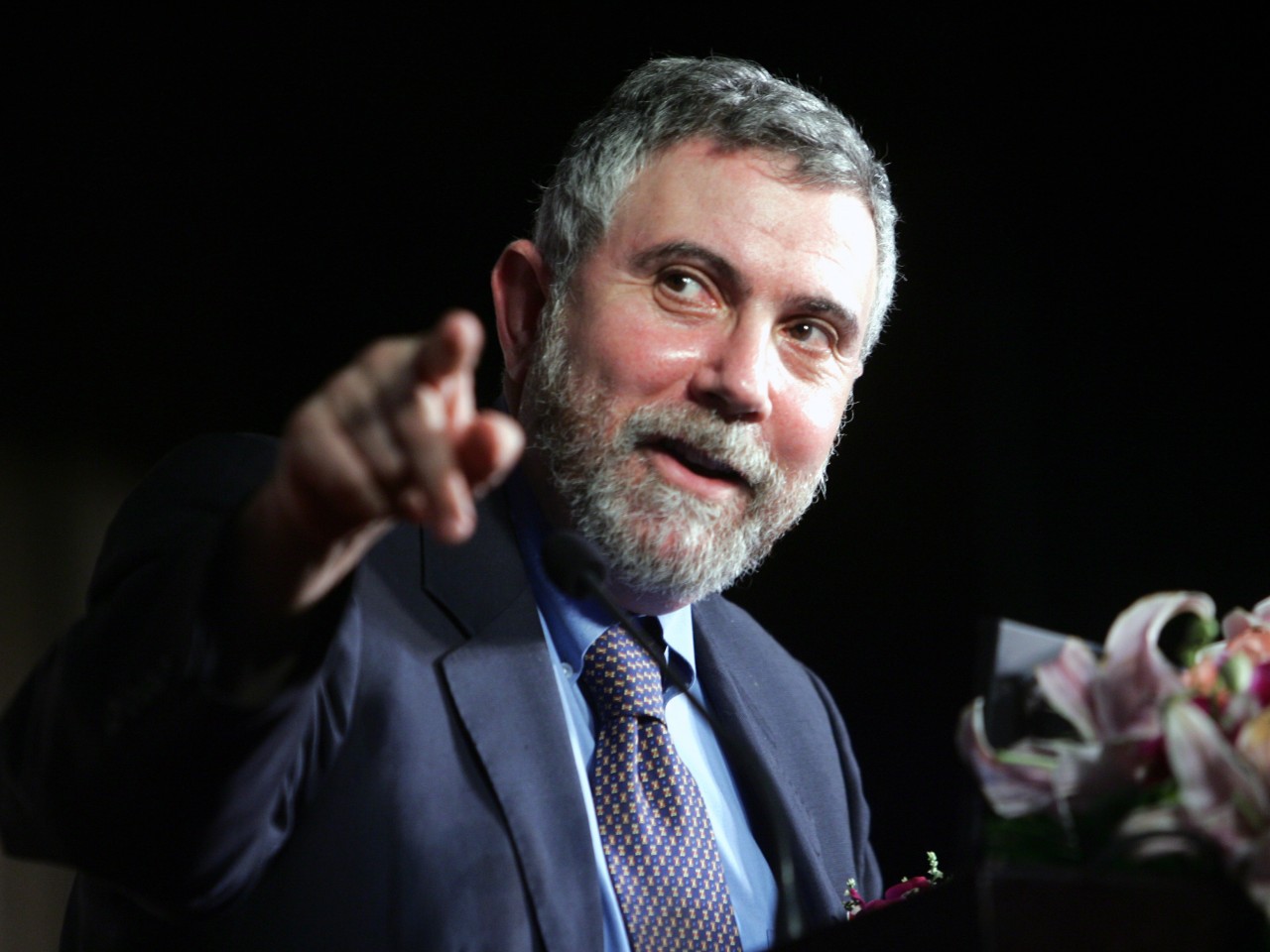Rock economics with Paul Krugman, plus the Ting Tings, Sun Club and Bully
By Jim DeRogatis

Rock economics with Paul Krugman, plus the Ting Tings, Sun Club and Bully
By Jim DeRogatis
AUSTIN, TX—With 2,000 bands traveling from across the country and around the world to perform at South by Southwest, one question that always hangs over these proceedings is how many of them ever will find it possible to support themselves solely by their music.
Now more than ever, post-digital revolution, is this even a remotely realistic goal? Might it not be like the misguided idealist leaving graduate school and expecting to land a high-paying job as a poet? Are the odds of finding a successful merger of art and commerce in music as much of a long shot as winning the lottery?
At the Austin Convention Center on Thursday, by far the most interesting and relevant panel of the day and of the conference so far was entitled “The Celebrity Economy in Music,” featuring not only Nobel laureate, Princeton University economics professor, New York Times columnist, and former Sound Opinions guest Paul Krugman, but brothers Win and Will Butler of Arcade Fire, a group that has succeeded against all odds to rise from the deepest underground to filling arenas.
These three voices alone would have been more than enough to fill the session. Unfortunately, moderator Rembert Browne of Grantland squandered too much of the time allowing other participants to self-servingly prattle on; from them, we learned only that “data” is the big buzz word in the industry this year, as if tracking digital clicks is a valid measure of artistic worth. And we got yet more talk about how authenticity is a bogus concept and artists partnering with corporate sponsors is just swell. (Sigh. Again.)
Nevertheless, there were words of wisdom from the trio hailed earlier. Krugman cited the work of a Princeton colleague who found that even at the height of the CD boom in the ’90s, artists earned an average of 7 times more from live performance than from the sale of recorded music. So it has always been—“from time immemorial,” Krugman said—and so it likely always will be, since “nothing can top the experience of being in a room” with the performers, though he did grant than in the live arena as in the rest of capitalist America today, most of the money is earned “by the top 1 percent.” (Hello, Bono and Madonna!)
Win Butler underscored that point by noting that even though Arcade Fire “has the best record deal in the world,” with the independent label Merge, “we make more from one big festival performance than everything else combined”—sales of physical product, broadcast plays, streaming audio, and all the rest.
Afterwards, on the Radio Day Stage, the Ting Tings, the electronic duo from Salford, England, highlighted songs from Super Critical, the strong new album they released in January, as well as playing their signature hit “That’s Not My Name” from 2008. Though they certainly are still very deserving, the lack of buzz/excitement here this year for vocalist and multi-instrumentalist Katie White and her multi-instrumentalist partner Jules De Martino underscored another point the Butler brothers made about the ever-increasing pace of the digital music world, which consumes and discards artists far too quickly, as well as robbing them of the chance to develop naturally by playing and learning from all those “awful gigs in Iowa City.”
The other panel of note Thursday was “Festival Best Practices: Industry Insiders Share,” though the participants really didn’t share all that much, never considering, for example, the question of the impact their mega-events have on local music communities. Especially disappointing was how Matt Frampton, vice president for sales with Pitchfork Media, never mentioned the words “R. Kelly” when asked about the biggest challenge/controversy the music festival has faced in its 10 years in Chicago’s Union Park. Though he’d earlier waxed on about the extraordinary efforts by organizers to make everything, from events like onsite book readings and an indie record fair to the food offerings, “really good” and in keeping with a certain ethic and aesthetic, that apparently does not extend to considering the ethics of booking an artist who has done significant damage to many underage women.
As for the rest of the music on day three, it was an evening devoid of notable discoveries, with two exceptions.
Sun Club is a lovably goofy quintet formed in Baltimore in 2012, with a strong pop sensibility to their pseudo-psychedelic weirdness—think of a slightly less hippie Animal Collective, or a more focused and together Foxygen. The band released its debut EP in January, but its wiggy good cheer is even more infectious onstage.
Waiting for my final pick of the night, I caught enough of the set by much-lauded, Virginia-born, Nashville-based singer and songwriter Natalie Prass to confirm that I wasn’t wrong about my intense dislike of her recent debut album. My pal Todd Martens of The L.A. Times compares her music to that of a Disney heroine like Cinderella; he means it as a compliment, while I cite it as quite the opposite.
Then there was Bully, a Nashville quartet led by the ferocious frontwoman Alicia Bognanno. I first was alerted to the charms of the group’s self-titled 2013 EP by one of my students in Reviewing the Arts at Columbia College Chicago—Jenn Raymo wrote a fine review you can read here—and she rightly cited the band’s roots in ’90s alternative rock by the likes of the Breeders and Veruca Salt. But there’s nothing retro in the band’s energetic assault or Bognanno’s barely constrained raging against male hegemony and the apathy of too many in her generation. Need further proof of the band’s buzz worthiness? It’s already been announced as part of the lineup at this summer’s Pitchfork Music Festival.
Follow me on Twitter @JimDeRogatis, join me on Facebook, and podcast or stream Sound Opinions.
